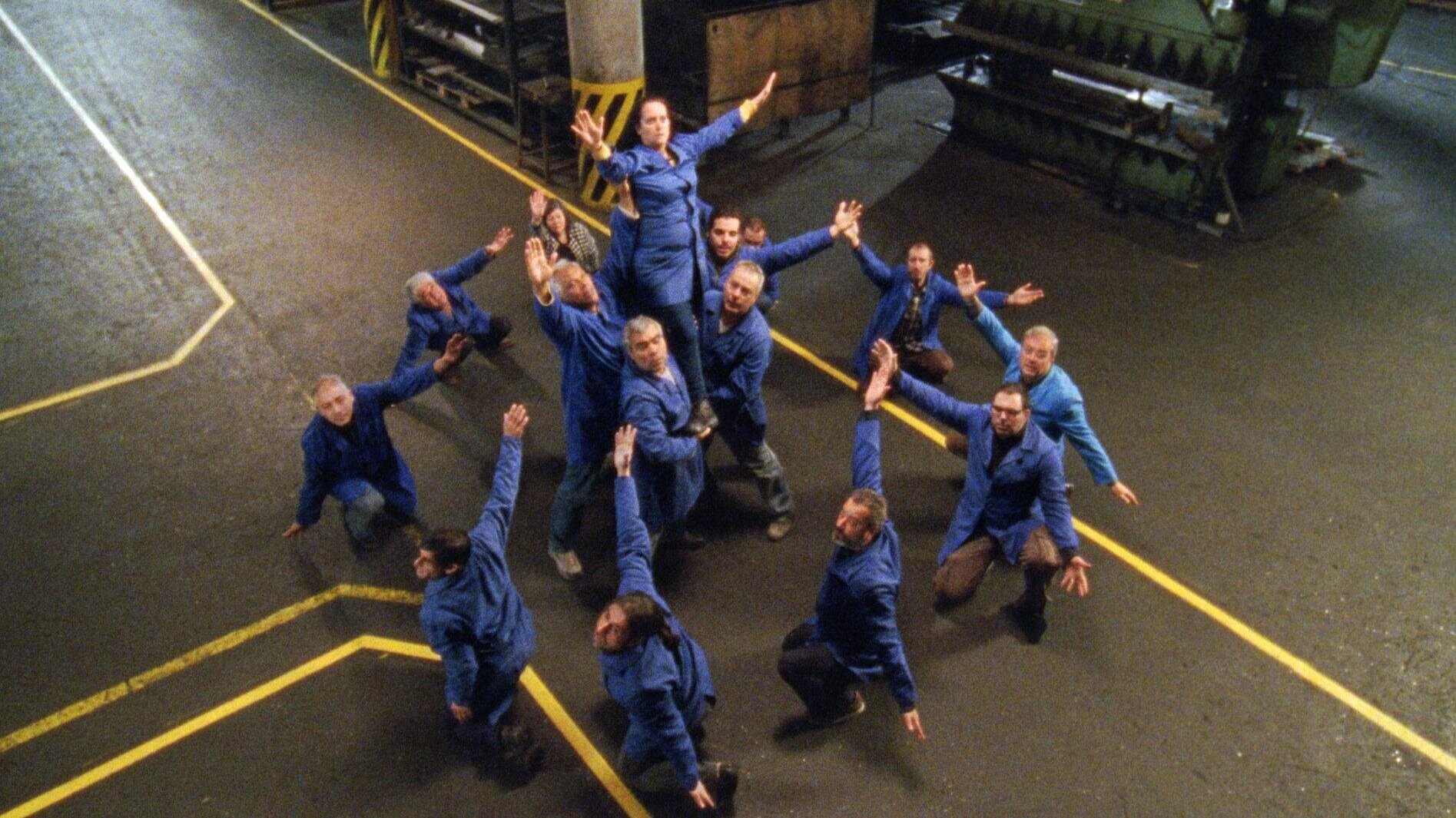The Nothing Factory
A Portuguese factory seen as a symbol of capitalism today.
Portuguese cinema is unusual in that, while being less notable than the output of numerous other countries, its best-known filmmakers tend to be adventurous souls often with a keen interest in the avant-garde. If the late Manoel de Oliveira was the standout example, this spirit carries on in the works of Miguel Gomes and now Pedro Pinho. The latter, who is also a documentarian, made in 2013 a modest first feature with actors entitled The End of the World but now goes for broke with a follow-up, The Nothing Factory, which lasts almost three hours. Being faced with a film of such length can be daunting - and all the more so when, as here, the piece is not a spectacular epic but an intimate story of workers in a factory at odds with their bosses. However, on its own terms, the film works well for some two hours, only then to lose its grip - or so I felt, but others may respond differently.
Although centred on one worker, Zé played by José Smith Vargas, the film looks less at his personal life (he lives with a foreign immigrant who has brought her child with her) than at the situation in his workplace, a factory where elevators are made. At dead of night equipment is removed ready for a close down and the staff, taken by surprise, find themselves encouraged to agree to pay-offs to quit. The administration takes the line that the company is on the verge of insolvency. That may be true or it may be that moving on is the company’s way of exploiting cheap labour. Some workers go for the money offered, but ought they to have resisted and should the others go on strike or simply occupy the factory to prevent other machinery from being removed?
Pinho, who includes in his cast many non-professional actors, may take his time but, with frequent and telling use of close-ups of the individuals concerned, we the audience are made to feel that we are truly in the middle of it. This is ultra-realistic and thoroughly involving in a way that Ken Loach would admire. More self-conscious are occasional voice-overs in the form of political quotations and the like, but this does act as a pointer to the fact that the particular story told here is intended as a reflection of a broader issue. The film suggests that the greed inherent in the capitalist system renders it one that needs to be challenged, even if the debts that it runs up these days might possibly undermine it, but argues that because the same greed exists in human nature that fact makes the possibility of any real change negligible.
Well into the second hour, a point is reached when the issues that had arisen as part and parcel of the story seem to turn into a political discourse, just as on occasion the ideas of George Bernard Shaw expounded at length in his plays held up their development. But, far more seriously, while the conclusion to The Nothing Factory is to the point, much of its last hour comes over as much too diverse. That includes in particular the involvement in the story of a stranger (Daniele Incalcaterra). After the stress on realism, a sudden outbreak into song and dance seem incongruous and, if belatedly we are asked to believe that the stranger is a filmmaker who has staged it, such behaviour remains most unlikely. For me, dissatisfaction sets in and all the more powerfully when it happens after two hours and with another hour still to go. Nevertheless, there is much here of distinction and those drawn to the material even if feeling some exasperation before the end will find much cause for admiration.
MANSEL STIMPSON
Cast: José Smith Vargas, Carla Galvão, Njamy Sebastião, Daniele Incalcaterra, J. Bichana Martins. Herminio Amaro, João Santos Lopes, Paulo Vittorino, Rui Ruivo, António Cajado Santos, Zé Pedro.
Dir Pedro Pinho, Pro João Matos, Susana Nobre, João Gusmão and Pedro Pinho, Screenplay Pedro Pinho, Leonor Noivo, Luisa Homem and Tiago Hespanha, from an original idea by Jorge Silva Melo, based on the play De Nietsfabriek by Judith Herzberg, Ph Vasco Viana, Art Dir Luisa Homem, Ed Cláudia Oliveira, Edgar Feldman and Luisa Homem, Music Dirs Pedro Rodrigues and José Smith Vargas, Choreography Joana Pupo.
Terratreme Filmes-ICA Films.
177 mins. Portugal. 2017. Rel: 26 January 2018. No Cert.


